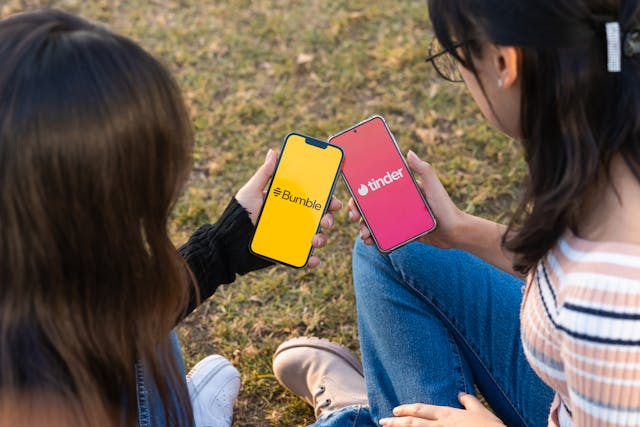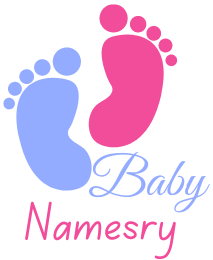I Pretended to Be a Man on a Dating Site – and I Hate What I Discovered

It started as a joke.
A late-night dare between friends.
“What if we made a fake male profile—just to see what it’s like on the other side?”
I didn’t think much of it at first.
I picked a stock photo of a decent-looking guy. I wrote a simple bio: “Easygoing. Loves hiking and bad pizza. Just seeing who’s out there.”
Nothing creepy. Nothing provocative. Just… ordinary.
I clicked “submit.”
And within minutes, my inbox exploded.
What I thought would be a harmless little experiment turned into a crash course on gender, loneliness, and the brutal reality of modern dating.
I pretended to be a man online.
And I absolutely hated what I found.
The First Shock: How Hard It Was to Get Noticed
Let’s start with the obvious: Being a man on dating apps is brutal.
I spent years hearing about how women’s inboxes get flooded with messages. How they’re overwhelmed with attention.
And here I was… sitting in radio silence.
Sure, I got matches—but only after hundreds of swipes. And even then?
Most matches didn’t message first. Some unmatched immediately.
The few conversations I tried to start? Dead in the water after “Hey” or “How’s your day going?”
It was humbling—and humiliating.
I finally understood why so many men feel invisible online.
Not bad.
Not creepy.
Not undateable.
Just ignored.
The Second Shock: How Aggressively Some Women Treated “Me”
I expected rejection.
I didn’t expect hostility.
I had women:
- Open with “What’s your net worth?”
- Demand to know my height before saying hello
- Send passive-aggressive one-word replies, like I was lucky to be speaking to them
- Ghost instantly if my answers weren’t entertaining enough within five minutes
Now, to be clear:
Women deal with horrific stuff online too. (And I’m not excusing the harassment they face.)
But seeing this side made it clear:
Men are often treated like disposable entertainment.
Swipe right for a dopamine hit. Swipe left when the conversation isn’t thrilling enough.
There was no patience. No generosity. No humanity.
Just… constant auditioning for attention that might never come.
The Third Shock: How Desperately Some Men Were Trying
Out of curiosity, I created a second male profile—no pictures, just a basic bio.
Then I browsed the general feed, watching other guys’ profiles float by.
It broke my heart.
- Men posing awkwardly with dogs, cars, or nieces—trying to seem lovable
- Men listing every hobby they could think of—trying to seem interesting
- Men writing long paragraphs about their dreams—trying to seem worthy
You could feel the effort radiating from these profiles.
The aching need to be seen. To be chosen.
And the worst part?
Most of them wouldn’t be.
Not because they were bad.
But because the numbers—and the game—weren’t built for them.
What This Experiment Taught Me About Dating (and Humanity)
I came into this experiment thinking, “It’s just dating apps. How bad could it be?”
Here’s what I learned:
- Online Dating Isn’t Just Hard for Women—It’s Brutal for Men, Too
Yes, women face harassment.
Yes, women have to filter through creeps.
But good, kind, genuine men are also struggling—to be seen, to be valued, to be humanized.
They’re drowning in a sea of “not good enough”—and nobody talks about it because men are supposed to “suck it up.”
- The Culture of Instant Gratification Has Dehumanized Everyone
When you can swipe someone away in half a second, it’s easy to stop seeing them as a person.
Dating apps aren’t designed to foster connection.
They’re designed to maximize addiction: endless options, shallow evaluations, dopamine hits.
We’re not choosing people anymore.
We’re choosing profiles.
And people aren’t profiles. They’re messy, complex, imperfect, extraordinary human beings.
- Rejection Hurts Men in Ways They’re Not Allowed to Admit
Women are encouraged to vent about bad dates, ghosting, mixed signals.
Men?
They’re expected to “man up,” try harder, be funnier, make the first move, handle the silence without complaint.
But rejection—even silent rejection—erodes your spirit over time.
And the worst part?
Nobody tells men it’s okay to hurt about it.
Why I Left Feeling Angry—And Heartbroken

I didn’t come out of this experiment thinking “poor men” and “bad women.”
That’s too simplistic.
I came out heartbroken that dating apps have made us all worse.
More impatient.
More dismissive.
More addicted to instant validation and instant disposal.
I hated seeing how quickly empathy disappeared.
I hated realizing how exhausting it must be for a man to show up authentically—knowing he’ll probably be ignored anyway.
I hated that somehow, we’ve built a dating culture where hope feels embarrassing.
So… What Now?
After deleting my fake profiles, I sat with one haunting thought:
“If we all felt seen—really seen—would we treat each other like this?”
Probably not.
Maybe the real solution isn’t better photos, funnier bios, or cleverer openers.
Maybe it’s rebuilding the part of ourselves that still believes strangers deserve kindness.
Maybe it’s:
- Pausing before ghosting
- Responding with decency, even if you’re not interested
- Giving someone more than 30 seconds to prove their worth
- Remembering that a real person is on the other side of every awkward “hi”
Because if there’s one thing pretending to be a man online taught me, it’s this:
The problem with dating isn’t men.
Or women.
It’s forgetting we’re all just people.
Flawed.
Hopeful.
Lonely.
Trying.
Just… trying.
And maybe if we remembered that a little more often,
dating would feel a little less cruel—and love wouldn’t feel so far away.
FAQs
- Were you pretending to catfish people?
No. I didn’t engage in deep conversations, flirt, or emotionally lead anyone on. It was purely observational. - Do men really have it that bad online?
Statistically, yes. Studies show that women receive far more matches and responses than men, even with comparable profiles. - Should women feel guilty about being picky?
No. Everyone deserves to have standards. But being kind—even when rejecting—costs nothing and preserves dignity. - Is online dating hopeless?
Not hopeless—but it’s challenging. Real connection often happens when people slow down, stay open, and treat others as more than just swipeable content. - What’s the biggest takeaway from this experience?
That genuine connection requires patience, empathy, and a willingness to see beyond the surface—even when apps encourage the opposite.






